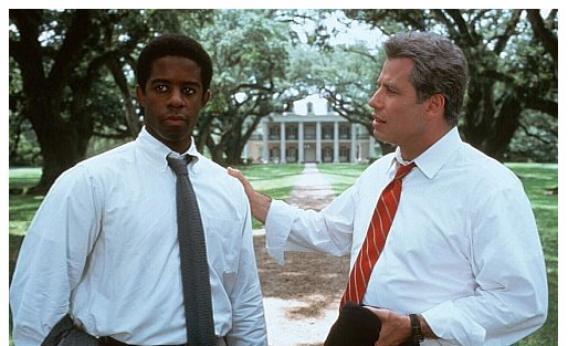Since word broke on Friday that CIA director David Petraeus was resigning his post because of an affair with biographer Paula Broadwell, the news cycle has whiplashed from one theory to another, trying to figure out what exactly this scandal is about: Is it about classified information? A scheming professional climber? Proof that the FBI is abusing its power to investigate the private lives of public figures? An example of military culture gone awry? As the who, what, where, and whys continue to unravel and we all sweat to keep up, here are four movies that go a long way toward explaining the sexual culture of Washington and the powerful men who live it.
1. The Seduction of Joe Tynan (1979): A must-see, if only for the sight of Alan Alda and Meryl Streep in bed together, The Seduction of Joe Tynan shows just how sexy shared interests can be. Alda plays Joe Tynan, a senator who’s been tapped to lead the campaign against a conservative Supreme Court nominee, raising his political career prospects. But he risks everything for an affair with Karen Traynor (Streep), a smart lobbyist, that begins when they’re out on the road together, inspecting wetlands. What’s sticks with you isn’t just Tynan’s stupidity—though there’s that too—but also how much fun he’s having with Traynor. We tend to think of affairs as furtive, desperate things. But despite how sordid they can seem when exposed, The Seduction of Joe Tynan is a reminder of why people, particularly those with lots of power but little in the way of amusement, fall into affairs in the first place.
2. Primary Colors (1998): Based on Joe Klein’s novel of the same name, Primary Colors follows the peccadillo-plagued campaign for president of a southern governor named Jack Stanton (John Travolta, in one of the best performances of his career), otherwise known as Bill Clinton. Rather than trying to understand the appetites of powerful men, the movie is more interested in how people enable those men and those appetites, whether they are aides lying to themselves about their candidate’s transgressions, or actively covering them up in service of some perceived greatness. When Libby Holden, the long-time friend of Jack Stanton played by Kathy Bates, mourns that “No one ever calls you on it. Because you’re so completely fucking special … Me too. Me the worst,” she’s articulating what it’s like to believe in someone so deeply, and to have that faith betrayed.
3. Heartburn (1986): Not strictly a political scandal movie, Heartburn is the movie adaptation of Nora Ephron’s novelization of her marriage to Carl Bernstein—a marriage that was broken up by his perpetual philandering. But if you’ve been watching l’affair Petraeus-Broadwell unfold and marveling at how small the world of the scandal seems—Broadwell’s emails were investigated after she harassed a friend of Petraeus, Tampa hostess Jill Kelley, who was herself exchanging flirty emails with Petraeus’s successor in Afghanistan—this is the movie for you. As Rachel Samstat (Meryl Streep again) navigates life in Washington with her journalist husband Mark Forman (Jack Nicholson), the city starts to feel more and more claustrophobic with every encounter Rachel has at a Georgetown supermarket or at the beauty salon, where she bolts out mid-perm. I can only imagine that the social bubble of the military elite feels equally incestuous, and is equally capable of driving everyone a little crazy.
4. Dick (1999): Particularly if you’re of the view that the FBI, which has its own problems with an agent who sent shirtless photos of himself to Jill Kelley, dramatically overstepped its bounds in investigating Broadwell and Petraeus, watch Dick. It’s both one of the great, underrated Washington movies, and a brilliantly mean portrait of powerful men working themselves into a flop sweat. After two teenaged girls (Michelle Williams and Kirsten Dunst) accidentally witness the Watergate break-in, the Nixon administration goes to great lengths to placate them, even making them Checkers’ official dog walkers. But when the two turn out to be good for more than worshipping the president and hooking up the Secret Service with magic brownies, the administration turns on them. The lesson? The less time important men spend on teenage girls and middle-aged mistresses, the better for the nation.
